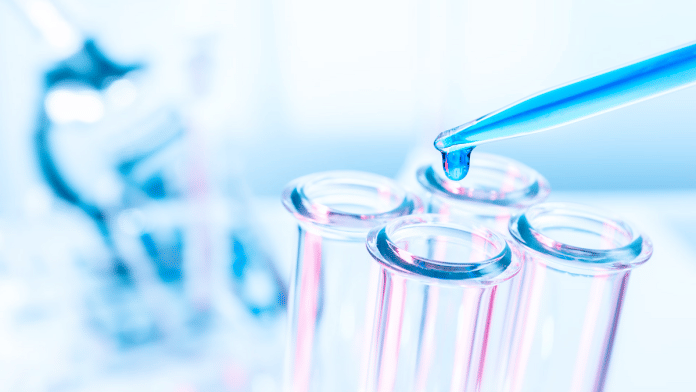The bioeconomy is entering a defining moment. Advances in biotechnology, artificial intelligence (AI) and global collaboration are opening new frontiers in health, agriculture and climate solutions. Within reach are safe and effective vaccines and therapeutics, developed within days of a new outbreak, precision diagnostics that can be deployed anywhere and bio-based materials that replace fossil fuels.
But alongside these breakthroughs lies a challenge: the very tools that accelerate discovery can also introduce new risks of accidental release or deliberate misuse of biological agents, technologies and knowledge. Left unchecked, these risks could undermine trust in science and slow progress at a time when the world most needs solutions.
The question is not whether biotechnology will reshape our societies: it already is. The question is whether we can build a bioeconomy that is responsibly safeguarded, inclusive and resilient.
The promise and the risk
AI is transforming biotechnology at a remarkable speed. Machine learning models and biological design tools can identify promising vaccine candidates, design novel therapeutic molecules and optimize clinical trials, regulatory submissions and manufacturing processes – all in a fraction of the time it once took. These advances are essential for achieving ambitious goals such as the 100 Days Mission, the effort to compress vaccine development timelines in response to future emergent pandemics within 100 days, enabled by AI-driven tools and technologies.
Yet, the same algorithms that drive these breakthroughs could, in the wrong hands, be misused to potentially design dangerous pathogens or toxins.
The stakes extend beyond security. Without equitable access to AI-driven tools, low- and middle-income countries risk falling behind in innovation and preparedness. Without distributed infrastructure, inclusive training datasets, skilled personnel and role models, the benefits of the bioeconomy could remain concentrated in a few regions, perpetuating inequities in health security, technological opportunity and scientific progress.
Building a culture of responsibility
Technology alone cannot solve these challenges. What is required is a culture of responsibility embedded across the entire innovation ecosystem, from scientists and startups to policymakers, funders and publishers.
This culture is beginning to take shape. Some research institutions are integrating biosecurity into operational planning and training. Community-led initiatives are emerging to embed biosafety and biosecurity awareness into everyday laboratory practices. International bodies are responding as well: in 2024, the World Health Organization adopted a resolution to strengthen laboratory biological risk management, underscoring the importance of safe and secure practices amid rapid scientific progress.
The Global South is leading the way in practice. Rwanda, for instance, responded rapidly to a Marburg virus outbreak in 2024 by integrating biosecurity into national health security strategies and collaborating with global partners. Such exemplars demonstrate that with political will and the right systems in place, emerging innovation ecosystems play leadership roles in protecting communities and enabling safe participation in the global bioeconomy.
Why inclusion and equity matter
Safeguarding the bioeconomy is not only about biosecurity; it is also about inclusion. If only a handful of countries shape the rules, control the infrastructure and train the talent, innovation will remain unevenly distributed and risks will multiply.
That is why expanding AI and biotechnology capacity globally is so urgent. Distributed cloud infrastructure, diverse training datasets and inclusive training programmes can help ensure that all regions are equipped to participate. Diverse perspectives from scientists, regulators and civil society, across the Global South and Global North, are essential to evaluating risks and identifying solutions that are fair, secure and effective.
Equity is also a matter of resilience. A pandemic that spreads quickly will not wait for producer countries to supply vaccines and treatments. A bioeconomy that works for all must empower all to respond.
The way forward
The World Economic Forum, alongside partners such as CEPI and IBBIS, continues to bring together leaders from science, industry and civil society to mobilize collective action on these issues. At this year’s BIO convention, for example, a group of senior health and biosecurity leaders from industry and civil society met to discuss the foundational importance of biosecurity and biosafety for life science, to future-proof preparedness and innovation ecosystems for tomorrow’s global bioeconomy and to achieve the 100 Days Mission.
The bioeconomy stands at a crossroads. On one path, innovation accelerates solutions to humanity’s greatest challenges: pandemics, climate change and food security. On the other path, the same innovations, unmanaged, could deepen inequities and expose society to new vulnerabilities.
The choice is ours. By embedding responsibility, biosecurity and inclusive governance into today’s breakthroughs, we can secure the foundation of tomorrow’s bioeconomy.
But responsibility cannot rest with a few institutions alone. Building a secure and equitable bioeconomy requires a shared commitment across regions, sectors and disciplines.
The bioeconomy’s potential is immense. Realizing it safely will depend on the choices made now. Choices that determine not just how we innovate, but how we safeguard humanity’s future.
This article is republished from World Economic Forum under a Creative Commons license. Read the original article.






